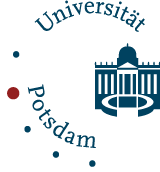international conference
John Berger: the poetics and politics of collaboration
Collaboration is a leitmotif that runs through the multi-faceted work of John Berger. In his art criticism he consistently interrogated the deep-seated notion of the artist as individual creator, and instead propagated the insight that “every authentic painting demonstrates a collaboration”. In line with this, his own creative praxis as novelist, poet, script writer, essayist, translator is essentially collaborative, as demonstrated by his manifold cooperations with film director Alain Tanner, photographers Jean Mohr, Jitka Hanzlová, and Tereza Stehlíková, TV producer Michael Dibbs, typographer Richard Hollis, or novelist Anne Michaels, among many others. Collaborations like these indicate Berger's deeply political understanding of aesthetics, leading to a sustained, indeed lifelong, commitment to socially engaged art.
In this perspective, practices of collaborative production and reception were crucial for any attempt to overcome the individualising effects of the capitalist art circuit and to counter the constraints of the dominant literary business with its fixation on the individual author. To create a space for free collective productivity, Berger, along with writer-activists such as Arnold Wesker, Lisa and Richard Appignanesi, and Glenn Thompson, founded the Writers and Readers Publishing Cooperative (1974), whose members shared their work and profits and promoted a radically democratic educational programme.
Moreover, Berger’s commitment has early on been truly internationalist and has engendered numerous collaborations with partners in the Global South from India and Mexico to Palestine. This extensive collaborative work includes, to name a few examples, prefaces and introductions to other writer’s and artists’ works; co-published articles and essays; collaborative translations; and numerous solidarity campaigns.
It is this consistent collaborative poetics and politics that makes Berger's work particularly rewarding for a reassessment of the potential of publicly responsible art, literature and theory – a reassessment that has become pressingly urgent with the emergencies of planet-wide multi-crises. Importantly, for Berger, politics always seems to involve a radical transcendence of the status quo. It is on this condition alone, he insists, that new forms of collaboration can be explored – collaborations that offer the exact ‘opposite of committees’: no easy and premature compromises, but the polyphonic coexistence – sometimes peaceful, sometimes conflicting - of many positions struggling seriously to come to an agreement.
The conference has been organized by Dirk Wiemann (Potsdam) and Christian Schmitt-Kilb (Rostock), who are very much looking forward to a cross-disciplinary conversation with artists and scholars, poets and (graphic) novelists, filmmakers and translators.
click here for the conference programme
for inquiries plase contact dwiemann@uni-potsdam.de

